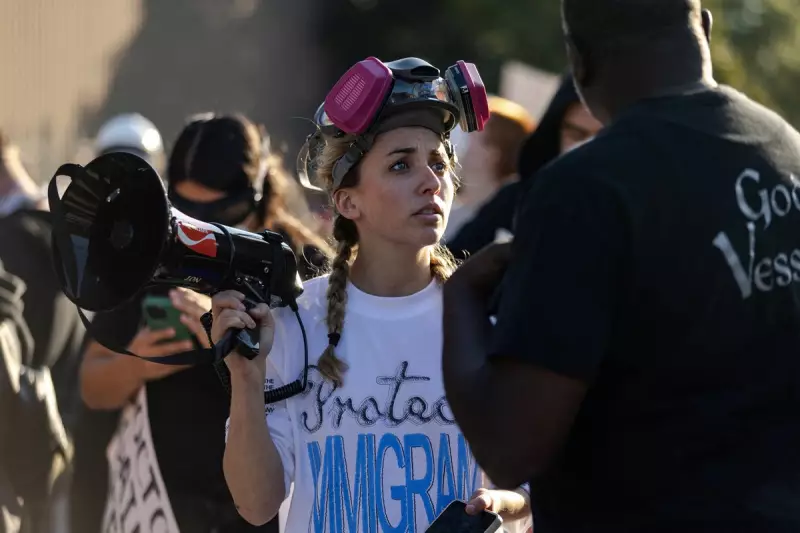
A prominent Chicago activist who helped lead dramatic protests calling for the abolition of Immigration and Customs Enforcement now faces federal charges herself after a confrontation at a federal building went viral.
Kat Abughazaleh, 25, has been charged with civil disorder following an incident where protesters allegedly blocked entrances and clashed with federal officers during a demonstration at the Dirksen Federal Building in downtown Chicago.
The Viral Confrontation
The charges stem from a protest where Abughazaleh and other activists attempted to prevent ICE officers from entering the building. Cell phone footage captured the tense standoff, showing protesters linking arms and chanting while federal police worked to clear a path.
In one particularly dramatic moment widely shared on social media, Abughazaleh can be seen directly confronting officers while other protesters shout and record the interaction. The video shows a chaotic scene as officers attempt to maintain order while activists resist movement.
Federal Response and Charges
Federal authorities have taken a strong stance against the protest methods, with the U.S. Attorney's Office filing the civil disorder charge against Abughazaleh. This felony charge carries potential prison time and reflects the government's increasingly hardline approach to protest disruptions at federal facilities.
"When individuals intentionally obstruct or interfere with law enforcement officers performing their official duties, they will be held accountable," stated a spokesperson for the Department of Justice.
Activist Backlash and Support
The charges have sparked outrage among immigration advocacy groups, who see the prosecution as an attempt to intimidate activists. Supporters have organised legal defence funds and planned solidarity demonstrations outside the courthouse.
Abughazaleh's organisation, part of the broader "Abolish ICE" movement, has condemned the charges as politically motivated. "This is clearly an attempt to silence dissent and criminalise peaceful protest," a statement from the group read.
Broader Implications for Protest Rights
Legal experts suggest this case could set important precedents for how federal authorities handle protest activities moving forward. The use of civil disorder charges against protest organisers represents an escalation in tactics that civil liberties groups are watching closely.
As the case progresses through the federal court system, it highlights the ongoing tension between protest rights and federal property security in an increasingly polarised political climate around immigration enforcement.





